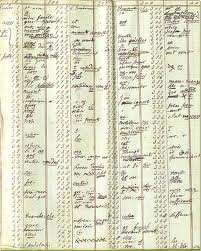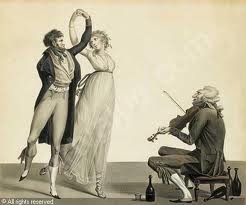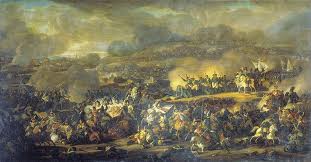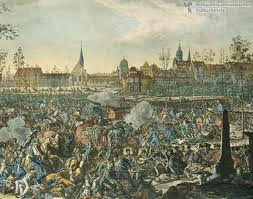It would seem I’ve been procrastinating…but that’s not actually the case.
What is the case is that I’ve got so much on my plate that any multi-tasking capabilities I may have possessed have run for the proverbial hills, leaving me with about three half-written blogs, piles of reading on Russian foreign policy circa 1812, half a sonnet frollicking about in my head, and too many characters from the next books standing in the wings, tapping their feet, waiting for their cue to come on.
[And the answer to “Ha ha, how do you sleep well at night?” is “Not very well really…I wake up at about four and…”]
Anyway.
Recently, I was reminded by a friend’s complaints about the cheesiness of much of today’s literary marketing of a letter I received from a literary agent, a female of the species. Which actually, in retrospect, amused me.
 I had sent this individual the opening chapters for my novel, Of Honest Fame, you see, along with the usual charming, banterful letter and a synopsis.
I had sent this individual the opening chapters for my novel, Of Honest Fame, you see, along with the usual charming, banterful letter and a synopsis.
Then, after the obligatory wait of several months, said agent had returned the sample chapters along with a rejection letter in which she compared the work to the novels of Georgette Heyer–novels for which, she assured me, there was no market.
From this fatuous comparison, I deduced she had either been drinking…and/or was terminally stupid…and most assuredly had never read any of Heyer’s work. [Even since her death in 1974, Heyer’s works have NEVER been out of print.]
Hence after my incredulous, “What?” you will understand that my uppermost emotion was relief at the lucky save!
[Exactly what about a boy setting a corpse alight and later getting the basting of a lifetime could possibly remind anyone of a novel by Georgette Heyer still eludes me. But then, I fear I am too literal in my understanding of these things.
What I’m guessing this creature was dim-wittedly trying to say was that the novel was set in the early 19th century, quite possibly the Regency, and therefore something or other…And I confess, one longed to meet the dotty female and say, “Yes, dear, the novel is set in the early 19th century. And so is War and Peace. Or can you not spell that?”]
But lately, you know, I’ve been seeing Miss Heyer’s name splashed about a fair bit–usually on the cover of some allegedly Regency novel [just like Georgette Heyer, the endorsement gushes] a term which was coined to describe some, though not all of her work–and this has actually made me want to spit teeth.
 For this comparison can only be based on the crudest and most simple-minded assessment of Heyer’s work–although, interestingly enough, in Heyer’s lifetime, critics of her work dismissed it with the words, “another Georgette Heyer.”
For this comparison can only be based on the crudest and most simple-minded assessment of Heyer’s work–although, interestingly enough, in Heyer’s lifetime, critics of her work dismissed it with the words, “another Georgette Heyer.”
And perhaps this is the problem. And it’s an ongoing one.
Because both of those statements about Heyer reveal how little the author/reviewer knows or understands of Heyer’s work, whilst at the same time committing the absolute bimbonic folly of fancying that a novel’s quality can be deduced from what the characters are wearing and where/when the thing is set..
To imagine that a novel is nothing more than a plotline, a time period and a few stock characters–thus anyone who writes a thing set in the early 19th century must of necessity be writing like Miss Heyer–is to wholly underestimate and undervalue the extra-ordinary talent, apparently effortless prose style, and wit of this quintessentially British author. It’s like saying all bars of soap are the same.
Or put another way, it is to be criminally stupid and terminally, intellectually myopic. Ehem.
(Just as when I see contemporary authors comparing their own works to hers, I mark them down as delusional.)
Because Georgette Heyer is inimitable.
There is no one like her.
Just as no one is like P.G. Wodehouse.
Heyer was a one-off, an original, a woman of tremendous talent who backed up every book with oodles of hard work and endless research, at a time when the historical novel–light, dark or in-between–hardly existed.
She was a pioneer.
Both Wodehouse and Heyer were authors of a certain era, who because of the tremendous ease with which they created their fictional worlds, their prodigeous talent for making prose flow like rippling, streams of wit, dominated the literary scene for more than five decades of the 20th century, without equal.
Like Wodehouse, her sentence and paragraph construction are peerless.
 And like Wodehouse and the world of Blandings Castle, Heyer created a parallel Regency London and initially Sussex (where she grew up)–one without politics, the nastiness of war or assassination or Napoleon, one where the West End and Mayfair were clean and bright and rarely raining [we wish!] and most people rubbed along tolerably well. And it is against this delicious confection of a backdrop that she set her tales, many of which were plays on the traditional favourite, the Cinderella story.
And like Wodehouse and the world of Blandings Castle, Heyer created a parallel Regency London and initially Sussex (where she grew up)–one without politics, the nastiness of war or assassination or Napoleon, one where the West End and Mayfair were clean and bright and rarely raining [we wish!] and most people rubbed along tolerably well. And it is against this delicious confection of a backdrop that she set her tales, many of which were plays on the traditional favourite, the Cinderella story.
You know the drill, poor female requires handsome rich prince to see through the tatters of her shyness and the ashes of her genteel poverty, her lower position in society, and recognising her true merit, her lovely laughter and wit, sweep her off to a happy, rich, life…Yadda yadda yadda…
And certainly given that during the early 19th century and indeed looking honestly at the career opportunities for women in the early 20th century, the Cinderella story is a fitting one–without a man, particularly a rich one to provide, life didn’t offer many choices, and even fewer bonuses.
Equally, unlike in real life, in Heyer’s world, the aristocracy and gentry were plentiful; the male of the species were witty, urbane, amused, well-dressed and loaded–all alpha males with a sublime sense of humour, great shoulders and a starched cravat.
But this, my friends and companions, is where Heyer gets interesting. Because she is not writing the standard Cinderella story in as many permutations as she can manage. Rather she is subverting the genre even as she is creating it.
Georgette Heyer was born in 1902, in Wimbledon. She lived through and remembered all her life that period of turmoil when women got the vote, when at last they were allowed into universities like Oxford and Cambridge, when a certain equality with males appeared possible. For women, the world in which Heyer grew up was one of new, untried and unexplored horizons. And Heyer, rather than writing the same old same old took that standard formulaic romance, broke the mold and turned it upside down, bless her.
If, as the Arab saying has it, “stories teach people how to live”, then Heyer was writing the template for the new millenia’s women.
Indeed, from the outset, Heyer’s females were not the simpering, swooning simpletons beloved by her fellow pioneers of historical fiction, Baroness D’Orzy and Raphael Sabatini. [Recall, Heyer’s first published work, The Black Moth, came out in 1921.] Instead, she started as she meant to go on and in her works, it was all to play for.
 The Masqueraders, published in 1928, gave the female protagonist the lead male’s role and gave to her brother the role of pantomime princess, beautifully dressed and undetected in female garb. And whilst this may have been a play on the history of the Scottish uprising of 1745 and the fact that Bonnie Prince Charlie escaped from Scotland dressed as a servant woman, and equally, the British stage has a long tradition of males in female roles, I cannot begin to imagine how this played in 1950’s America. If it played at all.
The Masqueraders, published in 1928, gave the female protagonist the lead male’s role and gave to her brother the role of pantomime princess, beautifully dressed and undetected in female garb. And whilst this may have been a play on the history of the Scottish uprising of 1745 and the fact that Bonnie Prince Charlie escaped from Scotland dressed as a servant woman, and equally, the British stage has a long tradition of males in female roles, I cannot begin to imagine how this played in 1950’s America. If it played at all.
The Corinthian, published in 1940, took the Cinderella lead and gave it to the rich hero. Sir Richard Wyndham is rescued (he says it himself) from the onerous duties and ties of family and financial expectation by the young rebel, Pen Creed–the ashes of his wealth and the tatters of his fine clothes seen through by this rebel-child of a girl with decided opinions, a wicked sense of humour and wearing boy’s clothing, thus ensuring Richard’s future happiness.
The Grand Sophy (1950) takes matters even further. Sophy isn’t just masterful, she masters the whole family–who admittedly need it. But there is nothing shrinking or feeble or swooning about her. She’s about as far from the Victorian virgin-ideal as one could hope to get. And reading her, I have no doubt, empowered a whole generation of young women, engendering in them the belief that they could surmount any and all obstacles, even as it encouraged them to be amusing, wise and formidable, and still be lovable.
(Since girls of the 1950s were still being encouraged to laugh at a bloke’s jokes, even when they weren’t funny, to shut up and listen and hide their own intelligence, this is probably a great deal more subversive than we might today think.)
 Venetia (1958), Frederica (1965), A Lady of Quality [Annis Wychwood] (1972), all provide further proof of her talent for upending convention. None of these main female characters are blushing debutantes. They are all older, wiser, savvier, pragmatic, with good, sound heads on their shoulders, shouldering burdens that the men in their lives have shied from. They are vibrant, confident, self-assured, the intellectual equal if not superior of their male counterparts, with a self-knowledge to rival that of a seasoned philosopher.
Venetia (1958), Frederica (1965), A Lady of Quality [Annis Wychwood] (1972), all provide further proof of her talent for upending convention. None of these main female characters are blushing debutantes. They are all older, wiser, savvier, pragmatic, with good, sound heads on their shoulders, shouldering burdens that the men in their lives have shied from. They are vibrant, confident, self-assured, the intellectual equal if not superior of their male counterparts, with a self-knowledge to rival that of a seasoned philosopher.
And none of them want rescuing. Indeed, often it is they who are more likely to mount the white charger and ride to the aid of their men…
But while Heyer may be mounting a subterfuge of a campaign on behalf of capable women everywhere, she does so with such finesse, such charming irony and delicious wit, that what might be a provocative storyline of female empowerment is couched in a flow of easily digested, apparently innocuous delight.
And yet, what an ironic wit she had. Her authorial voice was unique. Delicate, graceful, laced with genial good-humour, and without the cruelty of some of Austen’s observations, Heyer poked fun without poking anyone in the eye.
Listen to this: “Fashion was not kind to George…” Or she will write of a lady “enjoying ill-health”–how much more tolerant than Austen’s descriptions of Lady Bertram? That lightness of touch has more in common with Wodehouse, surely.
And she is, I will be honest, quite possibly greatest though when she writes of sisters, aunts and mothers. She captured these relationships with all their invisible, manipulative, endearing and powerful strings attached as no one before her or since. She writes them all honestly, graciously, humorously, with her tongue firmly fixed in her right cheek…
Her prose is as smooth and effortlessly elegant as the unfurling of silk pennants in the breeze–like “drowning in honey, stingless”–and is unmatchable and unrivalled.
And behind of and in back of all this was the strength of her unending research, her notebooks filled with slang, with details of dress, of society, family, invention and history.
Interestingly too, unlike the current craze for implausible aristocratic titles that one may encounter between the pages of contemporary historical romances, as she grew older, Heyer came more and more to favour stories of the gentry and professional classes.
 Black Sheep, A Lady of Quality, Frederica, Charity Girl, The Nonesuch, Cotillion, Arabella, The Toll-gate…whether she was playing to the new ideal of meritocracy and equality in the 20th century or whether she was sidestepping the Labour-inspired class warfare issues, I cannot tell you. But these novels are most assuredly not filled with scenes at Almack’s, tales of the ton, or tired witticisms allegedly spoken by George Brummell–the cliche-ridden world of so-called Regency romances.
Black Sheep, A Lady of Quality, Frederica, Charity Girl, The Nonesuch, Cotillion, Arabella, The Toll-gate…whether she was playing to the new ideal of meritocracy and equality in the 20th century or whether she was sidestepping the Labour-inspired class warfare issues, I cannot tell you. But these novels are most assuredly not filled with scenes at Almack’s, tales of the ton, or tired witticisms allegedly spoken by George Brummell–the cliche-ridden world of so-called Regency romances.
If Heyer has a failing at all, it is in her male protagonists–too many of them read exactly the same and might be carbon copies of one another: bored, well-dressed, sporty, self-indulgent. And they become invariably soppy at the end–which I personally find sick-making. But that’s just me.
Still…when I recounted the sorry tale of my rejection to a friend, an Oxford don (male), his reaction was as far from mine as could be. “She compared you to Georgette Heyer?” he said. “No one has ever paid me a compliment like that. If they had, it would have been the greatest compliment of my life! I would give anything to be compared to her…Wow!”
Which also makes me laugh. For truth is, I know how hard she worked and I respect her too much to even dream of aspiring to be her equal…



































